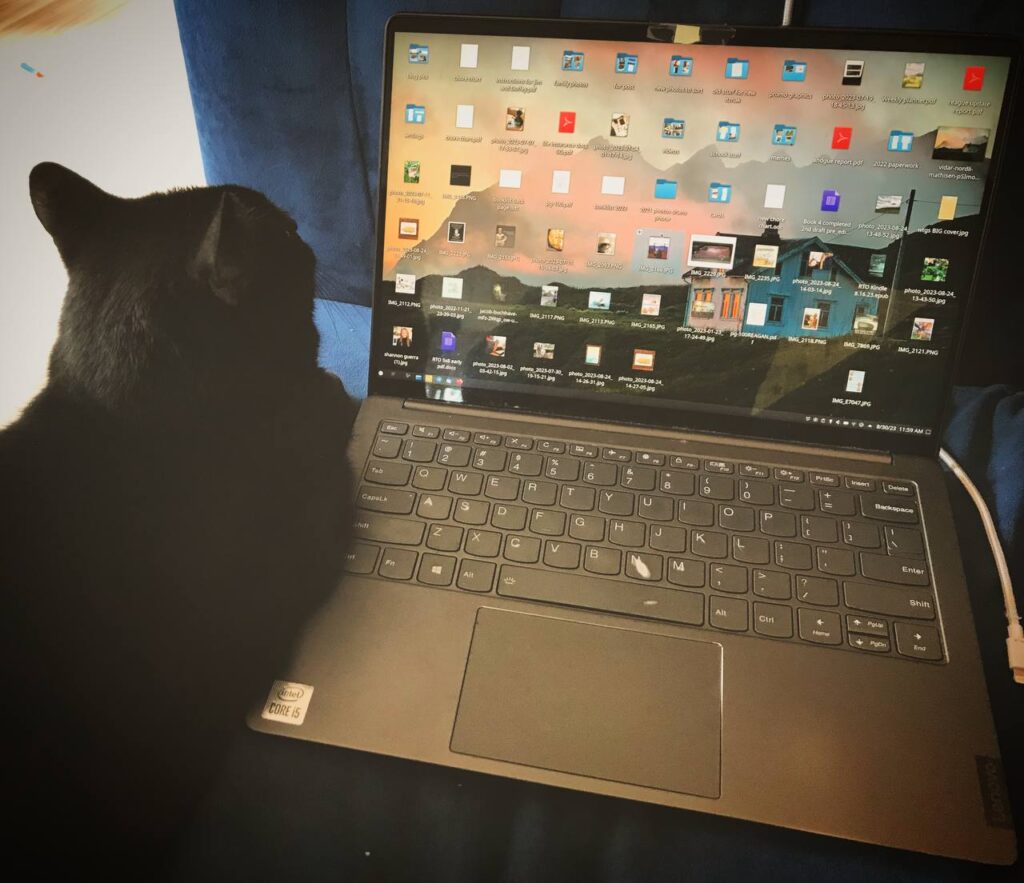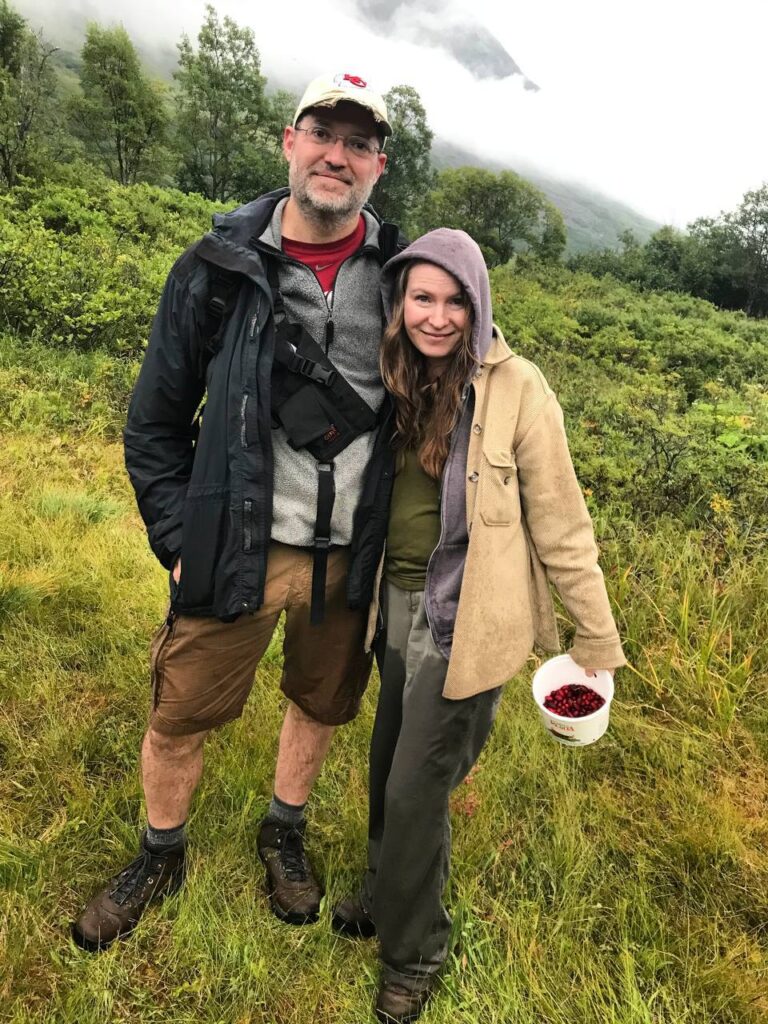When I come here to write to you, I often don’t know exactly what I’m going to say. I usually have a bunch of notes (sometimes way too many) and a theme (also, sometimes too many), and the first step is to do some sorting. Then fleshing out. And then refining.
It’s not a clean, pretty process. It usually involves some wailing and gnashing of teeth, a little yelling at the laptop, and lots of prayer and coffee.

Today I’m looking at a document of 2418 words and counting. That’s usually too long for a post, so I have it separated into two themes (hence, two posts), and here I am, writing the intro to one of those posts at the top of the document. So far, so good.
But there’s a ton of shuffling and rearranging to do. A lot of truth to find, and some unnecessary content to sift out. Figuring out what I’m really dealing with and what He really wants to say through me can be quite an ordeal.
And as we mature and grow in the Lord, this is what He does with us, too – because life is a journey of learning who (and Who) we’re dealing with.
(Side note: Yes, I know grammatically it should be “whom” but that sounds dorky and when I wrote a chapter on this in Oh My Soul, I intentionally used the more familiar phrasing rather than the stuffy-sounding correct version. So that’s my story and I’m sticking to it.)

As I was saying, there’s a lot about the writing process that reflects God’s work in us. And sometimes the stuffiest among (amongst?) us need the most work. Sometimes we’re so consumed with being right that we forget He is our righteousness.
For example, often when pastors or writers talk about God’s goodness, they feel the need to point out they’re not preaching a prosperity gospel. They don’t want to be seen as “those people.” But why does insecurity drive us to such defensiveness and finger pointing? Why do we need to qualify or apologize for God’s goodness? If we really understood how much God loved us, and we felt secure in that love (that is, knew Who and who we’re dealing with), we wouldn’t act out of such insecurity.
Sometimes God’s people can be the biggest accusers, and the most ungentle. When we don’t know our identity we confuse ourselves with God and act like the devil, judging and accusing everyone around us. But at the same time, we’re afraid to be on the receiving end of either of those, so we try to nip it in the bud by saying we shouldn’t be lumped in with “those people” – whoever “those people” are.
It’s an easy trap to fall into when critical thoughts are the loudest in our minds, whether they’re directed at ourselves or others. Those thoughts take the veil that was torn and carefully sew it back up, keeping that intrusive, all-seeing light safely on the other side so we don’t feel exposed. Stay over there. Don’t get too close, I don’t want you to really see me.
But if we really understood how much God loved us, we wouldn’t act out of insecurity. We wouldn’t need to build up our ego or protect our fragile facades; we would know that God already sees and knows, and we would walk in the ways of the One who did not revile when reviled because He knew He had nothing to prove. This is a big reason why we’re told not to cast our pearls before swine…because sometimes people act like swine when they don’t know their identity yet.
It’s easy to find those who are secure in their identity: They’re the ones who aren’t being defensive, even when accused by the brethren. (And who is the accuser of the brethren? Not someone we should be emulating or partnering with.)
If the enemy can convince us that other people in God’s family are our enemies and we are manipulated into treating each other that way, we forget who the real enemy is. We walk with a veil over our eyes, misdirecting our attack at each other instead of at the real enemy, and we end up doing his work.
The righteousness of our culture is at stake, not because we go around shaking our fingers at others (or ourselves) in condemnation, but because when we hear and share His words, we are pointing our finger toward the One who saved us. When we do that, we are poking holes in the canopy and light pours through, pressing into dark areas that have been filled with pain. Clouds disperse, answers and clarity start emerging. This is the security of Kingdom culture.

In the Bible, Jesus was constantly poking holes in those shrouds of insecurity, and He didn’t do it in the most predictable ways, either. Let’s look:
And Jesus went away from there and withdrew to the district of Tyre and Sidon. And behold, a Canaanite woman from that region came out and was crying, “Have mercy on me, O Lord, Son of David; my daughter is severely oppressed by a demon.” But he did not answer her a word.
And his disciples came and begged him, saying, “Send her away, for she is crying out after us.”
He answered, “I was sent only to the lost sheep of the house of Israel.”
– Matthew 15:21-24
Notice two things here: First, Jesus is answering the disciples, not the woman. Second, He’s not doing what they told Him to do.
They want Him to send her away – Look, Lord, this woman is making a scene and she shouldn’t even be talking to you – and He quietly poses the conflict to them, and you see the parallel of the Great Commission here: We start in Judea, then Samaria, and then to the ends of the earth. It was less about class and more about proximity and identity, because there is no favoritism with God.
Also, keep in mind that this passage comes immediately after His teaching on what really defiles a person: It’s not what goes in (like culturally acceptable food and traditions) but what comes out of the heart.
“But what comes out of the mouth proceeds from the heart, and this defiles a person. For out of the heart come evil thoughts, murder, adultery, sexual immorality, theft, false witness, slander. These are what defile a person. But to eat with unwashed hands does not defile anyone.”
– Matthew 15:18-20
So Jesus doesn’t send her away, and she comes closer in verse 25:
But she came and knelt before him, saying, “Lord, help me.”
And then Jesus does something He’s really good at doing, which is defying cultural expectations. He speaks to her. And here’s what He says in verse 26:
And he answered, “It is not right to take the children’s bread and throw it to the dogs.”
Okay, wait wait wait – I know you’re reading this and thinking, Wow, harsh and rude. It does sound that way. I’ve read some terrible commentaries that even declare that this is Jesus “putting the woman in her place” even though that is inconsistent with Scripture and it flies in the face of both the rest of this passage and His ministry.
Look at what is juxtaposed here: Jesus is speaking to her, while repeating the cultural attitudes that He and the woman were both familiar with. I don’t think He was calling her a dog – I think He was challenging the cultural attitudes, and testing her to see if she believed them. This is what the world says about you. Do you follow the world, or do you believe in Me? Do you know Who (and who) you’re dealing with?
With that in mind, His tone sounds like He’s quoting a common saying and He wants to see what her response is to it.
She passes that test beautifully:
She said, “Yes, Lord, yet even the dogs eat the crumbs that fall from their masters’ table.” Then Jesus answered her, “O woman, great is your faith! Be it done for you as you desire.” And her daughter was healed instantly.
– Matthew 15:27-28
He does it again. Defying cultural expectations, He praises her, and then rewards her. There are only a handful of times in the New Testament when we see Jesus astonished at someone’s faith, and this is one of them.
Similar to when He asked Peter “But who do you say that I am?” Jesus is asking her, Do you believe Me, or the world we’re living in? Which viewpoint do you value most? And she responds with faith in His goodness in spite of norms and common errors, and she knew He had abundance. She knew He wasn’t limited to cultural traditions and insecurities, and that she didn’t have to be, either.
Her story would have turned out differently if she had believed what was trendy. If she thought less of herself, or if she had thought less of Him, or if she was afraid to make a scene, or she was insecure about what other people might think, her daughter would have remained in torment. And she would’ve lived beneath her identity, too.
But she knew who, and Who, she was dealing with. She wasn’t intimidated by wagging fingers and condescending judgment of those around her…and we shouldn’t be, either.
His proximity burns off chaff, in us and in others: the clique-y ladies in church, the young man who always seems grumpy, the girl who comes off a little too strong in her opinions, the kid who holds back in smiling and emanates awkwardness…and even the woman who sits at the computer and wrestles with how her words will be understood by her readers.

The veil is close and we don’t even recognize these things about us half the time. The other half of the time, we know there’s something smothering us but we can’t quite identify what it is or why we do it or how to fix it.
But the Lord knows the roots behind these, and He knows how to heal and resolve them. We don’t have to strive and scour the depths of the unknown to fix ourselves.
We just need to be in proximity to the fire so He can do His work – and we can bring that fire for others in gentle power (which is what meekness is) and know He’s bringing healing and wholeness to our communities as we do it.
